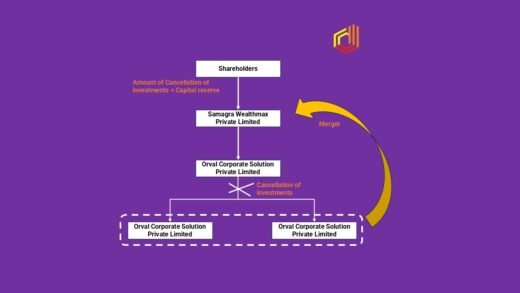Mumbai ITAT holds that differential amount between maturity proceeds on redemption of non-convertible debentures (NCDs) and the purchase cost tantamounts to interest income taxable under the head “income from other sources” and not as capital gains eligible for deduction under Section 54F and 54EC.
The Assessee is a director in Capricorn Realty Ltd and also engaged in the business of trading in shares and securities. A company named Hindoostan Spinning & Weaving Mills Ltd (“HSWML”) was declared as a sick unit under the Sick Industrial Companies (Special Provisions) Act, 1985 and as per the Rehabilitation Scheme was divided into 4 units and three Special Purpose Vehicles (“SPVs”), viz., Bhishma Realty Limited, Capricorn Realty Limited and Chaitra Realty Limited, were formed for managing three units and one unit continued to be with the existing HSWML.
Pursuant to the Scheme, the three SPVs issued 0% secured non-convertible Debentures (“NCDs”) redeemable at a premium on private placement basis to the nationalised banks in settlement of the outstanding loans in the year 2004/2005 and the terms and conditions of issuing NCDs were governed by a Debenture Trust Deed. One of key terms of the NCDs were that it were to be redeemed after 5 years and the premium was payable at the time of redemption.
During the year 2006, upon insistence of Banks for redemption of NCDs, the Assessee, being one of the directors along with other individuals purchased the NCDs from the nationalized banks. The Assessee purchased the NCDs issued by Bhishma Realty Ltd and Capricorn Realty Ltd.
Accoridngly, at the time of redemption of NCDs, the Assessee declared long-term capital gains (“LTCG”) and invested the maturity proceeds in purchase of a flat under construction and also in REC bonds and claimed exemption from LTCG under Sections 54F and 54EC. The Revenue denied the exemption under Section 54F on the ground that the NCDs were redeemed in Oct 2009 but the agreement for purchase of flat was entered into in July 2012 and moreover, the possession of the flat was not obtained within the stipulated period of 3 years. Revenue did not adjudicate the claim of exemption under Section 54EC.
Aggrieved, Assessee filed appeal before CIT(A) who held that redemption of NCDs would not give rise to capital gains and directed the Revenue to tax the difference between the maturity proceeds upon redemption and cost of NCDs as interest under the head “income from other sources”. Aggrieved by the said order, the present appeal is preferred before the ITAT.
ITAT notes Section 2(30) of the Companies Act, 2013 which defines “debenture” and holds that debenture, though falls under the definition of “securities” is essentially a debt instrument evidencing debt.
Rejecting assessee’s contentions, ITAT stated that the shares and debentures stands on a different footing and claim of assessee that redemption of preference shares or reduction of face value of shares results in extinguishment of rights, do not apply to debentures. Holds that “the redemption of debentures is nothing but repayment of debt and the same, in our view, cannot fall under the category of “extinguishment” as interpreted by the Courts in the case of Shares/Preference shares”.
Further, ITAT distinguishes coordinate bench ruling in Perviz Wang Chuk basi on the ground that it related to redemption of capital investment bond issued by Government of India and not the case of debenture issued on private placement basis. Reference was further made to CBDT Circular no. 2 / 2002 dt. Feb 15, 2002 and it was observed that both the amount of discount and the amount of premium, in effect, are “interest amounts” only and hence, the companies issuing both types of bonds/debentures usually claim discount/premium as interest expenditure and their claim has been allowed.
ITAT rejects assessee’s reliance on Section 50AA to draw an analogy therefrom that gain arising on redemption of debentures is taxable as capital gains. Observes that Section 50AA applies to “market linked debentures” (“MLDs”), the return on MLDs is determined on the basis of performance of an underlying market index or instrument and not based on pre-determined interest rate and hence, MLDs and NCDs are materially different. Observes that capital gains can arise in case of NCDs if they are sold in open market and amount realized thereon is different from the face value and the market value would depend upon various aspects considered by the market forces. Further ITAT observes that, in the present case, the NCDs which are privately placed and not listed on stock exchange are surrendered by the assessee to the issuing companies upon maturity and are not sold in open market.
ITAT holds that “it is a case of realization of money advanced by a creditor, since debentures are debt instruments only” and capital gains do not arise upon redemption by the issuing companies. Holds that the premium upon redemption is nothing but interest and liable to be taxed under the head “income from other sources” and not as capital gains, hence, assessee not eligible for deduction under Section 54F and 54EC.
For detailed discussion on above case law, please feel free to contact devadhaantu@devadhaantu.in



Hello there, You’ve done an incredible job. I抣l definitely digg it and personally recommend to my friends. I am sure they’ll be benefited from this site.